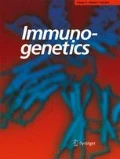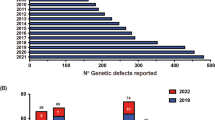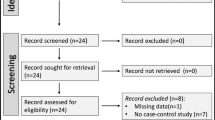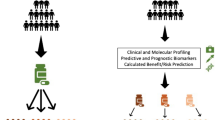Abstract
Two groups of receptors for immunoglobulin G (FcγR) can be distinguished. Endothelial cells and placental syncytiotrophoblasts express an MHC class I-like FcγR important for regulation of IgG half-life and IgG transport, respectively. FcγR expressed on leukocytes constitute a heterogeneous family of membrane bound and soluble proteins. The various FcγR (sub) classes of this family differ in ligand affinity and specificity, which is determined by primary structure, glycosylation, association with signaling subunits, and environmental factors (such as serine proteases). The finding that polymorphisms of FcγRIIa, FcγRIIIa, and FcγRIIIb critically affect interaction with antibodies has prompted analysis in patients which provided tantalizing evidence for the relevance of FcγR polymorphisms as risk factors for a number of infectious and autoimmune diseases.
Similar content being viewed by others
Author information
Authors and Affiliations
Additional information
Received: 15 January 1998
Rights and permissions
About this article
Cite this article
van der Pol, WL., van de Winkel, J. IgG receptor polymorphisms: risk factors for disease. Immunogenetics 48, 222–232 (1998). https://doi.org/10.1007/s002510050426
Issue Date:
DOI: https://doi.org/10.1007/s002510050426




